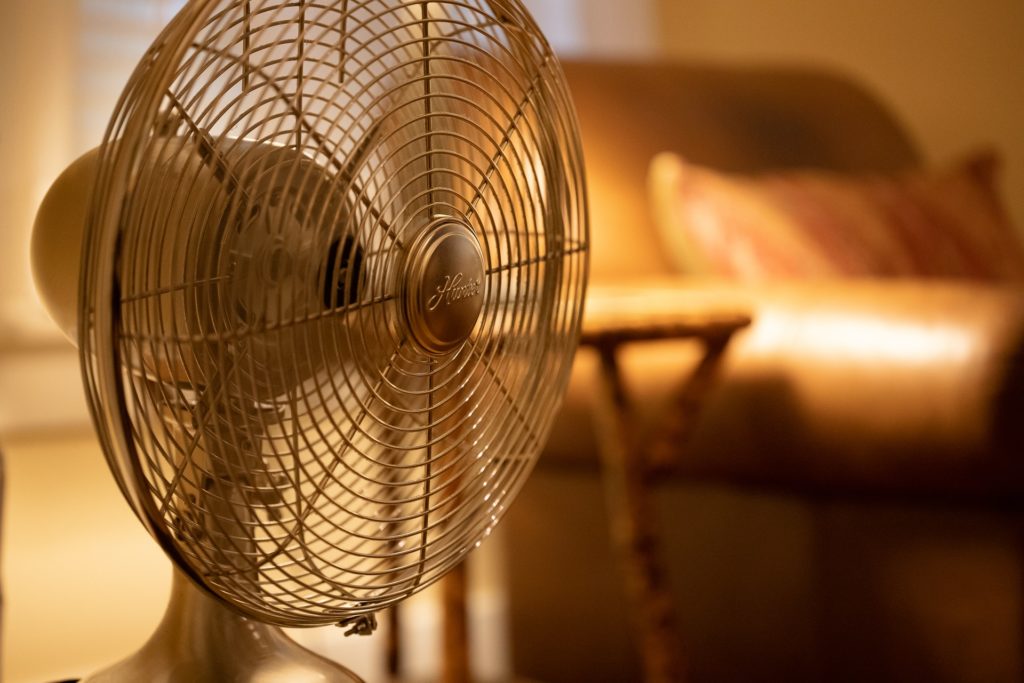As Belgium enters summer and temperatures begin to rise, the country could be facing a particularly deadly year for heat waves because many elderly residents have been left weakened by coronavirus infections, and friends and relatives who might check on them are still socially distancing.
Temperatures will climb past 30°C this week in parts of Belgium and both Brussels and the Flemish Agency for Care and Health have started the warning phases of their heat action plans.
“Anyone can get sick from both heat stress and COVID-19. However, COVID-19 has further enhanced the physiological and social susceptibility of many vulnerable groups to warm weather,” the Flemish agency warns.
“People with COVID-19 are extra vulnerable to heat-related illnesses and people with heat stress are extra vulnerable to the SARS-CoV-2 virus.”
In addition to the vulnerabilities that come with contracting the virus, measures against its spread - like social distancing - are also contributing to concerns about how the elderly will fare during heat waves.
“One problem is that we are still a little anxious to visit the elderly, that they’re still more isolated than before,” Professor Dirk Devroey, dean of the Faculty of Medicine and Pharmacology at Vrije Universiteit Brussel (VUB) told The Brussels Times.
“It’s important to have social contact with these people, and visit them regularly.”
Many of the social and medical workers who would normally be checking in on the vulnerable elderly are currently preoccupied with the country’s vaccination campaign.
“People from social services who were visiting these people in years before, when there were heat waves, now have other occupations, especially with contact tracing. The nurses and GPs put all their free time into vaccination right now,” said Devroey.
“They’ve also had a year of very hard work, and so some of them will be going on summer holidays. That makes a difference in terms of having elderly people perhaps more isolated, and it could take longer before they are detected as being at risk for heat problems.”
Still, Devroey thinks the heat-related death figures could actually be lower this year, because so many elderly people who would have been at risk in a heat wave have already died from the coronavirus.
The number of deaths depends on the length and intensity of the heat wave.
In 2003, a European heat wave resulted in 70,000 deaths across the continent, with over 14,000 deaths in France and a few thousand in Belgium.
“That was the worst summer for heat that we’ve known in the last 20 or 30 years,” Devroey said. “The governments weren’t prepared for the massive heat waves in 2003.”
“We can expect now that we will have more of these kinds of summers because of climate change, and most of the governments are prepared for it, but once again, these people are working really hard right now on vaccination. It’s more of an administrative problem or logistical problem than the heat itself.”
The Flemish Agency for Care and Health considers the following groups of people to be most vulnerable to both COVID-19 and heat stress:
- Elderly people (> 65 years and especially > 85 years);
- People with underlying health problems, including cardiovascular disease, lung disease, kidney disease, diabetes/obesity, mental health issues (psychiatric disorders, depression);
- People on medication: some medications for the above mentioned diseases impair thermoregulation. The impact of treatment for COVID-19 is currently unknown, but should be monitored to assess any additional vulnerability;
- People who are excluded or isolated (homeless, migrants with language barriers, elderly living alone) and those with low income, inadequate housing or without permanent accommodation.
“Heat stress will be an additional health burden on top of an already existing suboptimal immune system function in some vulnerable groups,” the agency says.
“This may further weaken immunity to COVID-19 in some people. In addition, COVID-19 prevention measures, such as ‘stay in your home,’ can exacerbate isolation and vulnerability to extreme heat. The social networks of many of these groups of people may be unavailable or inadequate because of COVID-19, making them even more vulnerable.”
People with cognitive problems, including dementia in the elderly and those with learning difficulties, may also have increased vulnerability.
Symptoms of heat stroke or heat sickness begin as mild: headaches, drowsiness and slow reactions or speech.
“These are all signs of dehydration,” explained Devroey.
People taking medications such as those for blood pressure or heart conditions are already at risk of dehydration or losing electrolytes. Many times during heat waves, dehydration leads to a fall, which can result in an elderly person lying on the ground for potentially days on end. That, in turn, leads to crush syndrome, kidney failure, then death.
Crush syndrome (or rhabdomyolysis) is a clinical condition caused by injury to skeletal muscle that results in leakage of muscle-cell components into body circulation, which is what causes the kidney failure.
“When people are victims of this sort of heat, often they need to be hospitalised in the intensive care unit. We are very happy now that there is at least some space in intensive care, as those figures are decreasing very well.”
As part of Flanders’ warning phase of their heat plan, municipalities, home care services, residential care centres, family doctors, child care centres and youth associations that work with vulnerable groups are to receive a reminder and tips to take measures against the heat.
People are encouraged to check in on neighbours and family members who could be particularly impacted by the rising temperatures.
The Royal Meteorological Institute of Belgium reports that temperatures will climb above the tropical limit of 30 degrees on Thursday and Friday.
Storms later in the week could help alleviate some of the heat, but highs are still expected to range from 25 to 32 C in places.

